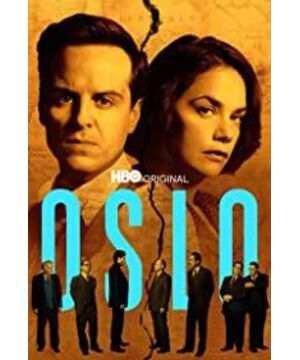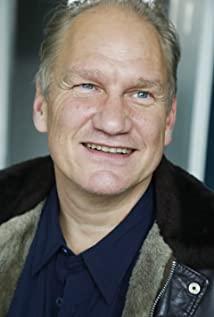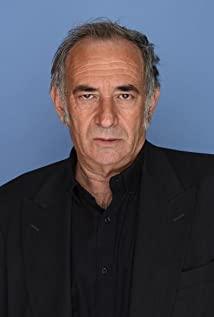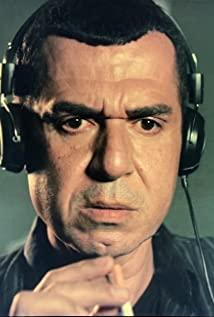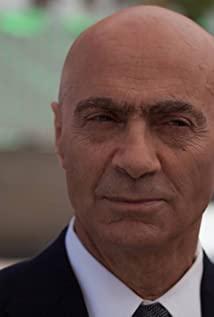Today, let's talk about the movie "Oslo".
The title of the film is Oslo (2021), also known as the Oslo Peace Agreement.
"Oslo" tells the story behind the iconic 1993 photo of Israeli Prime Minister Yitzhak Rabin and Palestine Liberation Organization President Yasser Arafat shaking hands on the White House lawn.
The story behind this used to be a secret history. In the 1990s, Israel and the Palestine Liberation Organization carried out the secret process of the "Oslo Peace Talks" under the coordination of Norway.
The story is based on and told from the perspective of a Norwegian couple, diplomats Mona Juul and Terje Rød-Larsen.
In 1993, Mona Juul had an idea that if meetings between representatives of Israel and Palestine were simply arranged and mediated, the adversaries could find some common ground.
Screenwriter JT Rogers adapted his own Tony Award-winning screenplay and made it into a film.
We can use this film as a medium to learn history and learn more about the secret story behind the Oslo peace talks.
The Oslo Accords are an important milestone on the road to peace in the Middle East.
The couple convened then-Israeli Prime Minister Yitzhak Rabin and Palestine Liberation Organization President Yasser Arafat for peace talks that resulted in the "Oslo First Agreement" signed in 1993 and the "Oslo Second Agreement" signed in 1995. played a huge role in the Second Agreement.
The two sides who have been at war for many years finally signed a peace agreement, and there must be many exchanges and confrontations without the smoke of gunpowder behind it. The signing and shaking hands of Rabin and Arfate that everyone sees is only a phased result, and the secret work in the early stage is the focus.
The Israeli-Palestinian conflict is one of the longest-running problems in the world.
The conflict originated in the 19th century, when both Jewish and Arab liberation movements arose, each fighting for sovereignty in the Middle East. Over the years, their border issue gradually turned into an armed conflict, which eventually became a serious socio-political issue.
In 1993, under the coordination of Norway, Palestine and Israel held 14 secret negotiations in Oslo for several months, known as the "Oslo Peace Talks" in history.
The latter part of the talks also led to the first direct talks between the leaders of the Palestinians and the Israelis, which made a major breakthrough for the two sides to achieve initial peace, and finally reached an agreement in principle on issues such as the first autonomy of Gaza and Jericho.
On September 13, the PLO and Israel formally signed the "Declaration of Principles of Provisional Self-Government Arrangements", the Oslo Accords, on the South Lawn of the White House.
The year after the agreement was signed, Arafat, Rabin and Israeli Foreign Minister Simon Peres were awarded the Nobel Peace Prize.
Everyone knows what happened later. In 1995, Rabin was shot and killed by radicals in public while giving a speech. Armed confrontation between Palestine and Israel began again, and the agreement was shelved indefinitely.
The Oslo Accords only allowed people to see the dawn of peace, but the real peace is still far away.
The most expensive peace is also cheaper than war, and people of insight will work together towards a better vision.
Being able to sign this agreement is a victory in itself. It shows that there are many people who yearn for peace. It is only a small number of interest groups who continue to provoked wars in order to profit from war.
The peace of a small country cannot help itself. For example, Norway, Palestine, and Israel are all wary of beautiful countries, and everyone must beware of being mixed up by beautiful countries before doing practical work; for example, the successors behind Rabin, they must transfer conflicts through war and maintain their rule.
In fact, the fundamentals of these conflicts are interests, religions and ethnic groups are all pretences, and profit-making is the core.
The root cause of the turmoil in small countries lies in big countries. When big countries play games, small countries can only be chess pieces, and those who are a little more tragic need to make chessboards. For example, the source of the conflict between Palestine and Israel lies in the beautiful country. In order to be able to stir up trouble in Europe, the beautiful country needs a turbulent area. Israel perfectly acts as this pawn.
Back to the film itself, the process of the "Oslo Peace Talks" described in the film is powerless for the follow-up development. What the audience needs to pay attention to is the performance of the actors and the performance of both parties during the secret talks.
The title of the film is Oslo, but no scenes were actually filmed in Oslo.
The hard behind-the-scenes work of the "Oslo Peace Talks" led to the signing of the Oslo Agreement, but almost no one has paid attention to the behind-the-scenes story, and this film is the work of the heroes behind the scenes.
Mona Juul (as Ruth Wilson)
Mona Juul was promoted to Norway's ambassador to Israel in 2001.
Since 2005, she has been Deputy Director and Ambassador of the Norwegian Mission to the United Nations in New York.
In "Oslo," the actor is Ruth Wilson, best known for "The Affair" and "Luther."
Tye Lord-Larson (played by Andrew Scott)
At the time of the negotiations, Terje Rod-Larsen was with the Norwegian think tank Fafo Institute.
He has continued to work with the Palestine Liberation Organization for the past 27 years before serving as the UN Special Coordinator for the Occupied Territories and then Director of the International Peace Institute (IPI), an international think tank.
The actor is the familiar Moriarty "Mo Niang" Andrew Scott (Andrew Scott).
Uri Saville (played by Jeff Wilbusch)
Uri Savir was Israel's chief negotiator in the Oslo Accords. Saville is currently the President Emeritus of the Simon Perez Peace Center.
During his tenure as Director General of the Israeli Ministry of Foreign Affairs, he also negotiated peace talks with Jordan, Syria and many countries in the Middle East.
He has written about his experience in The Process: 1100 Days that Changed the Middle East.
In the film, in order to highlight his personal characteristics, the character is arranged with red sunglasses and a black leather jacket, but according to historical photos, he is not wearing this way.
Jeff Wilbusch is an Israeli-German actor best known for his 4-part Netflix series Unorthodox (2020)
Ahmed Quray (played by Sally Mudau)
Ahmed Qurei became a key figure in Oslo negotiations after holding various key positions in the Palestine Liberation Organization.
He also participated in negotiations with Ehud Barak at Camp David in 2000.
After the resignation of Palestinian Prime Minister Mahmoud Abbas in 2003, Arafat nominated Qurei as prime minister. Qurei served as prime minister in this chaotic affair from 2003 to 2006, briefly resigning amid growing chaos in the Gaza Strip in 2004, the same year Arafat died. Struggle for peace for decades, he accused Israel of "beheading" the two-state solution.
The actor Salim Dau has appeared in the TV series Fauda and Tyrant.
Hassan Asford (Waleed Zoeit)
Hassan Asfour was an aide to Mahmoud Abbas, the final president of the Palestinian Authority, when he was appointed by Abbas to participate in the secret negotiations. After that, he participated in the Cairo talks, and finally reached the Cairo agreement of the second generation of Oslo.
Asif, now editor of the Palestinian Electronic Media Politics website (AMAD), has been critical of the original agreement.
Actor Waleed Zuaiter (Waleed Zuaiter) starred in "20th Century Women" (2016), "The Men Who Stare at Goats" (2009), "Sex and the City 2" (Sex and the City 2, 2010) et al.
Yai Heathfield (played by Dovalle Glickman)
Yair Hirschfeld was one of the Israeli scholars who attended the secret talks in place of the Israeli official, the other being Rotem Keinan. Heathfield met with Qurei several times in secret and helped formulate the declaration of principles contained in the Oslo Accords.
Heathfield later founded the Foundation for Economic Cooperation, which helped build further relations with Palestinian leaders.
Unlike the film adaptation, however, many of the peace processes in reality were facilitated by the Jules and Larsons outside the meeting.
The actor Doval'e Glickman (Doval'e Glickman) is an Israeli actor whose main works are the TV series "Shtisel" (Shtisel 2013) and "Big Bad Wolves" (Big Bad Wolves, 2013).
The secret history behind the peace agreement,
I really tried my best to fight for peace.
This is the distribution center for hardcore movie fans, welcome to pay attention to the public number: Miaokan Film and Television
View more about Oslo reviews


